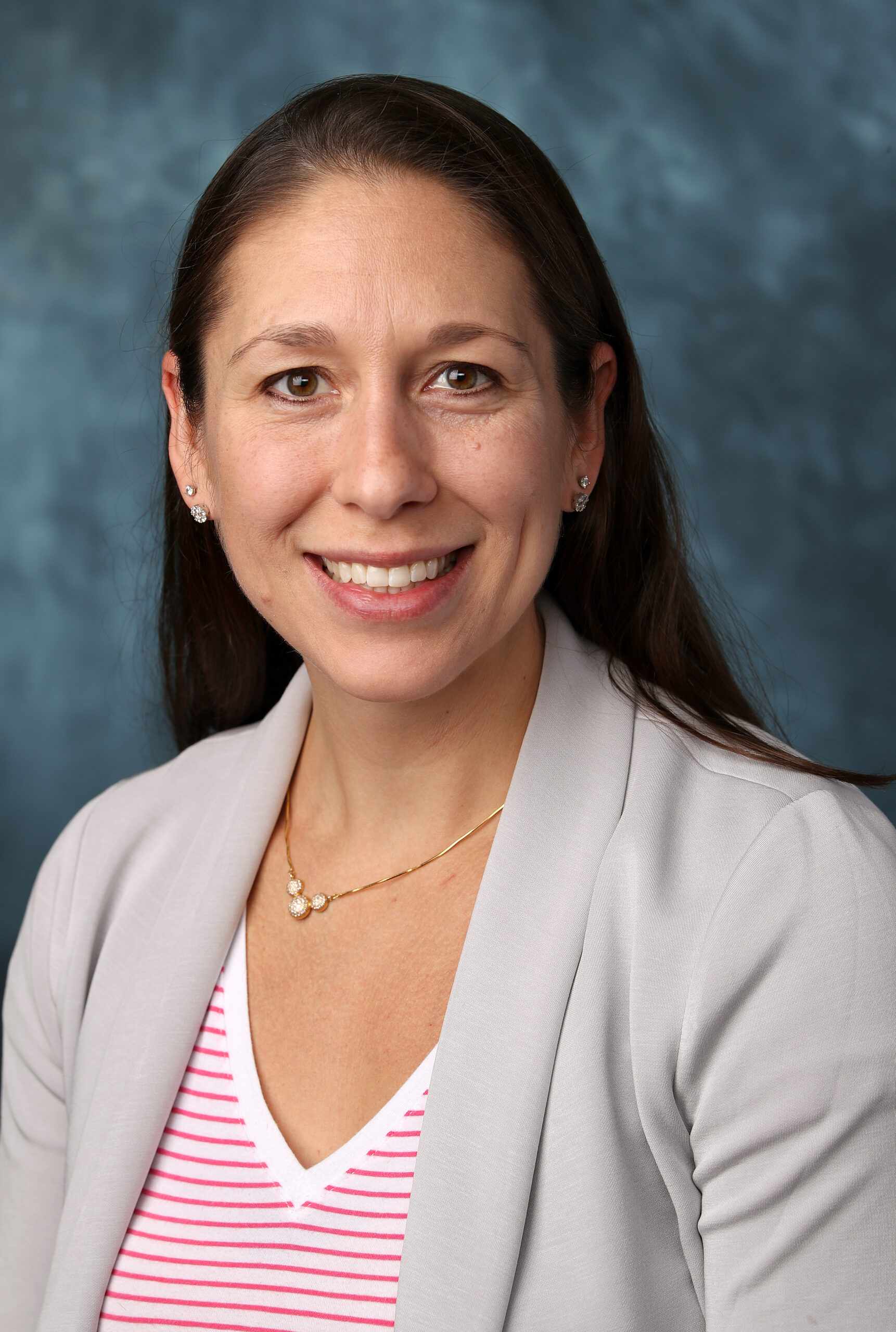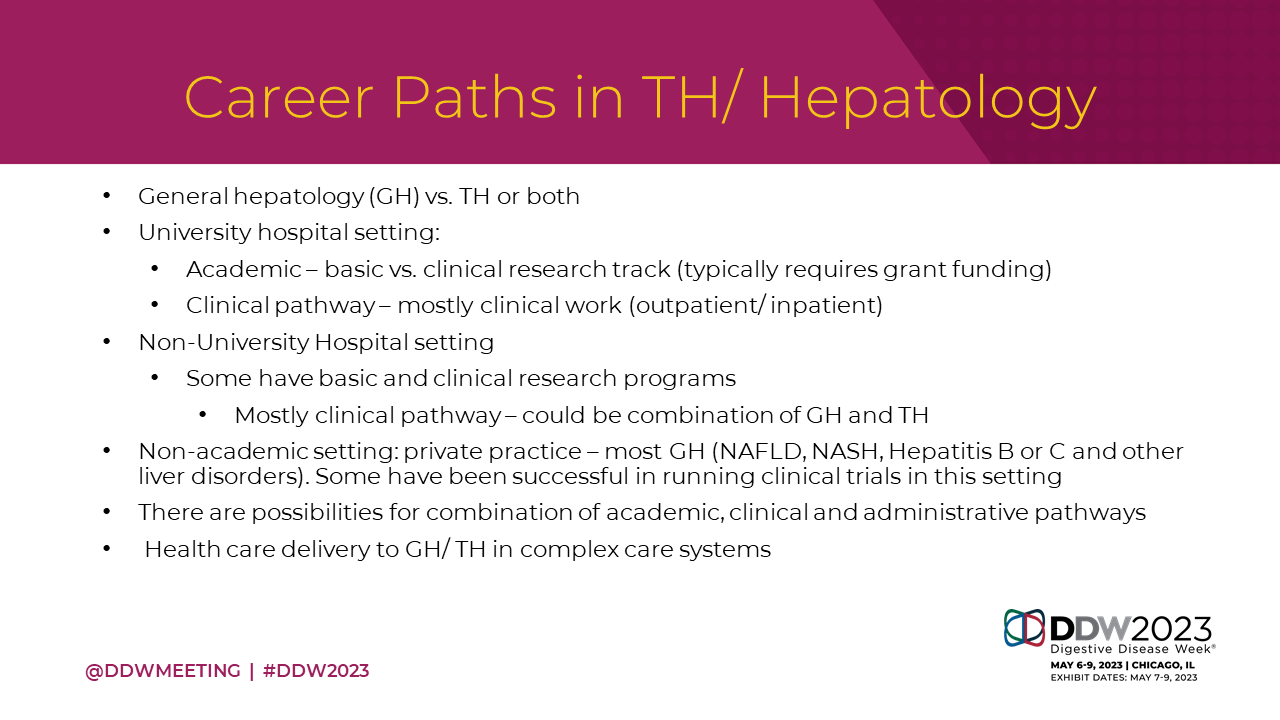AASLD is holding sessions on career options in adult and pediatric hepatology during Digestive Disease Week® (DDW) 2023. Amandeep Sahota, MD, assistant regional medical director of transplant services at Kaiser Permanente, advises trainees on pursuing adult hepatology, while Catherine Chapin, MD, medical director of hepatology and liver transplant at Ann & Robert H. Lurie Children’s Hospital of Chicago, gives her insights on the unique offerings of a career in pediatric hepatology.


DDW News spoke with Drs. Sahota and Chapin about what drew them to hepatology and what continues to excite them in their day-to-day work.
DDW: How did you become interested in hepatology?
Sahota: My mentors drew me to the field. When I started in hepatology, there wasn’t much happening. We didn’t have cures for HCV or many advances in transplantation. My mentor guided me about the future of hepatology.
Chapin: I knew early on that I wanted to take care of children. It’s a unique group of patients that spans from infants to teenagers, all with different challenges. I had not been exposed to much hepatology during my general pediatrics training, but during GI fellowship I became fascinated with liver disease and liver transplant and the ability to save a child’s life.
DDW: What do you find rewarding about working in hepatology?
Sahota: It’s a very satisfying job where you can change the trajectory of a patient’s life. In a lot of areas of modern medicine, we are simply managing conditions. But in hepatology, we have the opportunity to actually cure a patient.
I really value the ability to build long-term relationships with my patients. Gastroenterologists are very procedure-focused and only briefly meet with patients. In hepatology, you establish a long-term connection and become part of patients’ lives.
Chapin: I love taking care of children. They’re so resilient and have such a love for life. It’s amazing to help them live a full and happy childhood that they might not otherwise have.
Hepatology combines a lot of things that align with my interests. As a pediatric hepatologist, I get to participate in clinical and translational research, do procedures and see patients.
DDW: Are there many opportunities for trainees considering hepatology?
Sahota: We need more hepatologists. Fewer trainees are specializing in the field while the prevalence of liver disease is increasing, and cases are becoming more complex. To address this shortage, AASLD and ABIM have streamlined the training process to include hepatology in the three-year gastroenterology fellowship.
Hepatology lends itself to several career pathways. In addition to being a clinician, there are opportunities to stay in academics, pursue an administrative career or get involved in health policy. It can really be whatever you make of it.
Chapin: There isn’t as severe of a shortage in pediatric hepatology, but there are definitely fellowships and jobs available.
If you’re interested in staying in academic medicine, doing research and being involved in education, this could be a good fit. There is so much we don’t understand about pediatric liver disease, and many conditions do not have any specific therapies. There is an incredible opportunity in pediatric hepatology to learn more about these disorders, advance our understanding of disease processes and develop new treatments.
DDW: How is pediatric hepatology different from adult hepatology?
Chapin: It’s a completely different disease spectrum. Biliary atresia is probably the most common chronic liver disease we see. We take care of many children with rare genetic diseases, but we also see diseases that appear in adult populations.
Another key difference is volume and the patient relationship. Our center performs 15-20 liver transplants per year, which is much less than adult programs. We can therefore take more time with patients and develop that unique family relationship. We have patients who we transplanted as babies and followed through college. We get that experience of seeing our patients grow up, which is extremely rewarding. Lastly, since pediatrics is a small subset within liver transplantation, our role as advocates for our patients is especially important.
Drs. Sahota and Chapin’s panel discussions are part of the session “AASLD Career Options in Hepatology: Engaging Trainees in the Diversity of Career Pathways in Hepatology and Liver Transplantation” on Sunday, May 7, at 10 a.m. CDT.
If you’re attending DDW, your registration includes access to a recording of this session, available to watch at your convenience until May 17, 2024. Session captures will be released 24 hours after the session ends. Non-attendees can also purchase access to DDW On Demand to watch session recordings after DDW ends.




